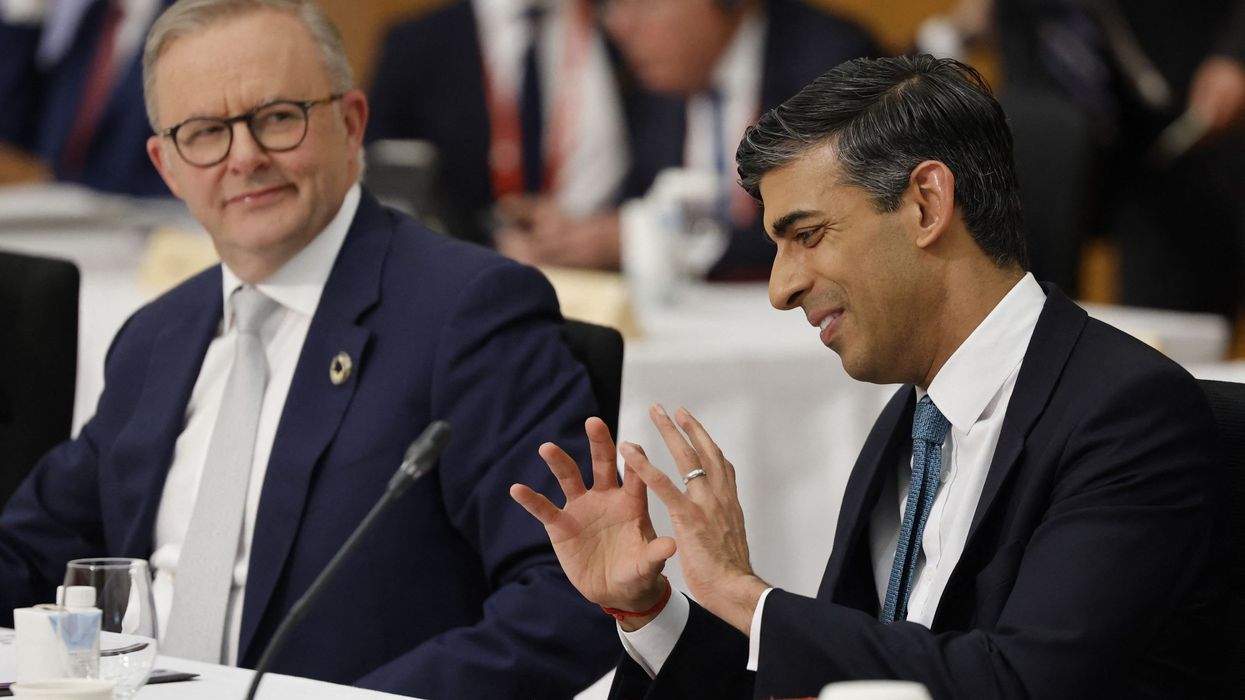THE British and Australian prime ministers have traded verbal bouncers after a controversial Test match between the two sides that has rocked the usually genteel world of cricket.
Amid allegations of bad sportsmanship, cheating and verbal abuse after Australia took a 2-0 Ashes series lead on Sunday (2), political leaders have now waded in.
British prime minister Rishi Sunak fired first, sending a spokesman out to decry the dismissal of English batsman Jonny Bairstow -- who was stumped during what he appeared to think was a pause in play.
Bairstow's dismissal was just not cricket, Sunak's spokesman suggested.
"The prime minister agrees with (England captain) Ben Stokes who said he simply wouldn't want to win a game in the manner that Australia did," the spokesman said.
On Tuesday (4) prime minister Anthony Albanese, a keen cricket fan, shot back that he was "proud" of Australia's "men's and women's cricket teams, who have both won their opening two Ashes matches against England."
"Same old Aussies -– always winning!" he added. "(I) look forward to welcoming them home victorious."
Sunak -- who is also a cricket fan and watched with Prince William from the Lord's pavilion on Saturday (1) -- did deplore abuse directed at the Australians by Marylebone Cricket Club (MCC) members.
Three individuals have had their MCC membership suspended pending an investigation.
"He thinks it was right that the MCC have taken swift action to suspend any members accused of poor behaviour," the spokesman said.
Sunak, though, has no intention of lodging an official protest with Albanese, to reprise the serious diplomatic strains created by England's "Bodyline" tactics in the infamous 1932-33 Ashes Down Under.
While there is a "friendly rivalry" over sport between the two leaders, Sunak does not view cricket as a core diplomatic issue, the spokesman remarked.
"The game did provide an opportunity to see Ben Stokes at his best and it was an incredible Test match -- he has confidence that England will bounce back," he added, after Stokes hit a blazing 155 in his second innings despite his side falling 44 runs short of victory.
The third Test gets underway at Headingley on Thursday (6), with Australia aiming to secure a much coveted Ashes win away from home.
But England coach Brendon McCullum also believes the incident can act as a lightning rod for a fightback in the series.
"In the end, they made a play, they've got to live with that. We would have made a different play but that's life," said the former New Zealand captain.
"In time, we'll see, but I get the feeling that it might have an effect on them.
"I don't know if it's anger, but our unit is galvanised. There are times as a coach where you've got to reduce emotion because it's going to bubble over and you can make poor decisions, but there's times when you allow emotion to go because it's going to galvanise the unit.
"That's what I felt this emotion did for the side. I looked around the group and the guys were a little upset. If that helps us to win those key moments in the next Test, then I'm all for it."
Former England captain Geoffrey Boycott has called for Australia to apologise.
"Australia need to have a think about what they did and make a full public apology," Boycott wrote in the Daily Telegraph.
(AFP)





